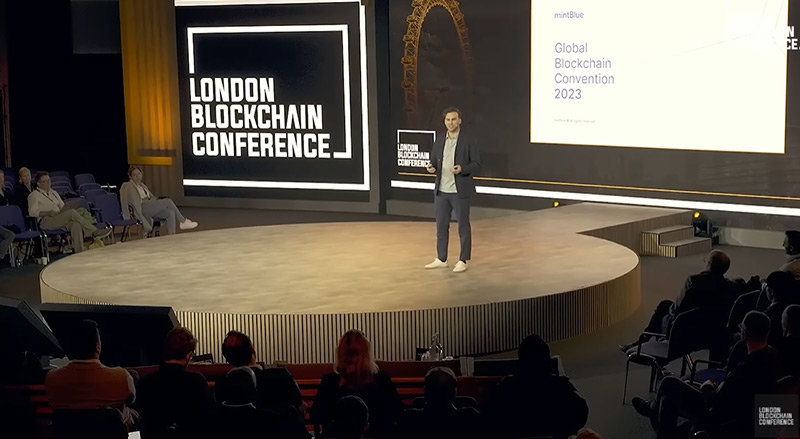In an era where information is the lifeblood of modern healthcare, the need for secure, transparent, and efficient data management has never been more paramount. Traditional healthcare systems are burdened by fragmentation, security vulnerabilities, and data silos that hinder the seamless exchange of vital patient information.
Enter blockchain technology and its decentralised and immutable ledger which offers a solution to the longstanding challenges plaguing healthcare data management.
mintBlue and smart wearables
MintBlue is one company which is at the forefront of this intersection between blockchain and healthcare, with the group announcing a new partnership with Nowatch on a range of smartwatches that double up as authenticator devices to users’ on-chain wallets.
Smartwatches typically monitor users’ health by tracking metrics such as heart rate, steps taken and sleep. However, the substantial volume of data they accumulate is conventionally stored on centralised servers, leaving users in the dark regarding its usage and safety, said Niels van den Bergh, CEO of mintBlue.
mintBlue and Nowatch are poised to revolutionise this paradigm by returning data ownership to the users. Upon acquiring the watch and installing the corresponding application, users can establish a non-custodial wallet directly on the device. In practical terms, this means that the data remains exclusively within the user’s device, except for the instances when it is securely transmitted to the blockchain, said van den Bergh.
Keeping your data safe on the BSV blockchain
After the data is stored on the blockchain, the private key undergoes a process of fragmentation across various recovery methods. One of these methods involves utilising a biometric sensor featuring a fingerprint of the user’s vital information. Simultaneously, other key components are distributed among entities like KYC (Know-Your Customer) providers, the users’ mobile phones, Google accounts, and more.
These distributed fragments can be combined by users to access their data, which they can subsequently share with third parties, such as research laboratories. Thanks to the BSV blockchain’s capability to facilitate micropayments, users also have the opportunity to receive compensation in small increments for their data.
The emergence of a personal data marketplace
‘You are the owner of your own biometric information encrypted on an on-chain wallet which can be authenticated and accessed with your own device. This is fingerprinted with your biometric information,’ said van den Bergh.
When you are the owner of your biometric information, a personal data market emerges. He added that Nowatch is an established company with an existing ecosystem and prominent partnerships with major players such as Philips Healthcare. ‘Together we are building a marketplace where every heartbeat, step, breath and sleep cycle is powered by absolute data ownership.’
Sharing your Nowatch data with service providers offers numerous advantages. For example, your doctor can access and monitor your sleep cycle after prescribing new sleep medication. Similarly, your gym trainer can observe your vitals and gauge your body’s response to an exercise regimen.
